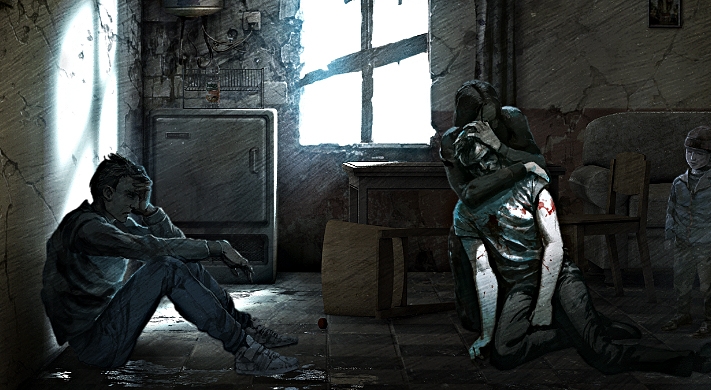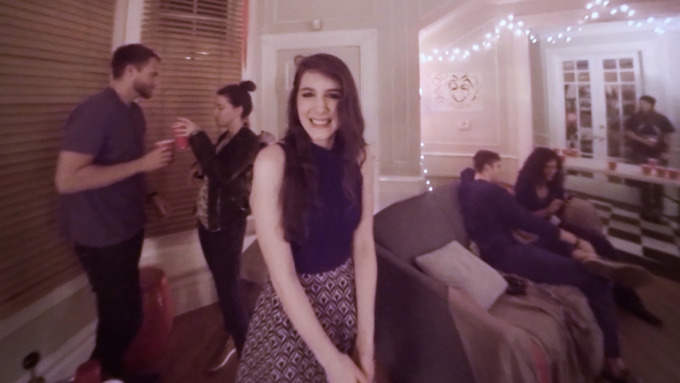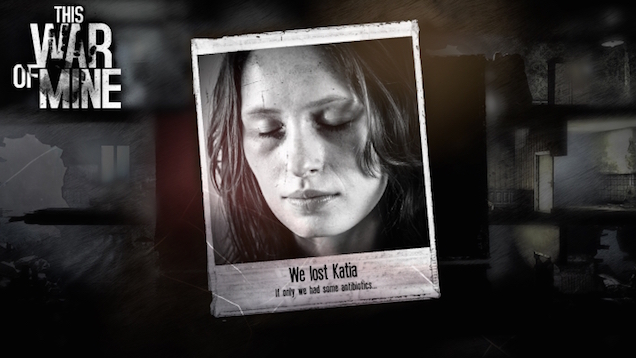We tend to hyperbolise whatever game comes along and eeks a feeling out of us besides adrenaline because the experiences are few and far between. Journey, The Walking Dead, To The Moon. It’s early days for games exploring the emotional spectrum, and I’ve got two pieces digging deep into this idea from totally different angles. It begs the question: do we want this?
This conversation often quickly bogs down into what individual people desire from video games. It’s where terms like “walking simulator” come from for Gone Home and its ilk. Are mechanics inherent to the term “video game”? Can you even come up with a good definition for mechanic?
This isn’t new, obviously, but the heated discussions surrounding these ideas is what makes me truly excited about the future of games as a medium. That we can’t come to a consensus on what video games even are anymore means they’re quickly becoming something else. Video games were always supposed to become bigger than the people who quietly championed them.
All that said, I’m excited as heck to stomp on some zombie heads in Dying Light this weekend!
BOOYAH! See you next week!
Hey, You Should Read These

My “favourite” game from 2013 was Papers, Please. It’s not the game I had the most fun with, but when I mulled over what experiences impacted me the most, it was easily Papers, Please. I didn’t blame others for being unable to get into the game, especially when they’d remark to me about how utterly depressing it was. That was the point, and what Maddy Myers grapples with in her essay about This War of Mine. My wife, for example, doesn’t really like to watch “sad” movies. Sitting down on a Friday night to watch a film is about escaping the stresses of everyday life to her, a position easy to understand. But I’m glad games are expanding to the point where “fun” isn’t the barometer of success. I’m interested in having games make us uncomfortable, allowing us to empathise with situations we couldn’t otherwise understand. That’s “exciting.”
“I say that because I’m not sure This War of Mine is accessible. The depth of its sadness renders it unplayable, at least for me. I mean, I played it, for a little while, but I could hardly bear it. It made me angry and frustrated, and then I felt guilty about feeling angry and frustrated. The characters were going through so much, and there was nothing I could do to help them. The worst part was knowing that was exactly the point. The game wasn’t even ham-fisted or pretentious about this lesson, either — it wasn’t a game that pointed to itself and yelled, “See, Maddy? War is bad!” Instead, it just crawled into my stomach and coiled there like a miserable snake, hissing at my heart.
Does that make it a “good” game? What is its “fun factor”? (Zero.) What is its “replayability score”? (Zero.) What purpose does it serve from a design standpoint? What lessons can other developers learn from This War of Mine — perhaps they can learn how to make a game that humans can only stand to play for a few minutes at a stretch, before craving the sweet release of death? What price-point would be fair to put on a completely miserable experience?”

We’re at the earliest stages of understanding the longterm impact of virtual reality, and there’s reason to believe it’s simply the new 3D, a trumped up fad relegated to obscurity after a few years. I hope not. I’ve seen the power of virtual reality, how the experience of placing yourself into a world overwhelms you in a way a regular TV set cannot. Josh Costine experienced a set of experimental VR demos, ranging from a bomb detonation in Syria to a first-person account of a sexual assault. The latter caused him to swiftly leave the room in quiet disgust. Can’t blame him.
“Perspective; Chapter 1: The Party places you at a beer-drenched college gathering. You play Brian, seemingly just another frat guy. As your eyes drift across the party, you come across Gina, pretty but pretty lonely, dancing by herself. You sway together, flirt, and drink.
But fast-forward, and Brian and his buddy have discovered Gina passed on the floor of a bedroom. For just a moment, you hope the two of you have pure intentions as you pick her and place her up on the bed. Then the scene turns sinister. Your friend suggests you take turns having sex with her as he gawks at Gina’s unconscious body.
The disgust and guilt are overwhelming. I winced, stomach churning as my character gruffly pulled off her boots. My cringing face relaxed only slightly when the scene went dark as it gets too graphic. The story continues as Brian and his accomplice scramble to escape the party, catching just a glimpse of Gina’s expression of shell-shock at the top of the stairs.
Most VR demos end with an attendant cheerily asking “How was it?!” I was thankful that the woman who took the Oculus Rift headset back from me said nothing. I avoided eye-contact. Left in the exhibition room modelled after The Party, complete with keg and sagging couch, I slinked out silently. These behaviours mirror those of true shame. I wanted to crawl somewhere dark and disappear. Once I began to digest the emotions, though, I wanted to mobilize against campus sexual assault.”
If You Click It, It Will Play
These Crowdfunding Projects Look Pretty Cool
- Unseen64 dedicates itself to finding information on cancelled game projects.
- Deirdra Kiai, one of gaming’s most interesting young voices, wants your support.
- Underworld Ascendant seems well on its way to reviving yet another old franchise.
Tweets That Make You Go “Hmmmmmm”
This Kate Upton game ad campaign $ would’ve more than paid for all of the first Dead Space’s development.
— Ian Milham (@Monkey_Pants) February 2, 2015
Bear in mind I am only 14 so production will be slow and maybe cancelled if this doesn’t receive any praise at all,
— GREENLIGHT: GOLD (@GREENLIGHTGOLD) February 3, 2015
Retro pixel art is a useful stylistic constraint for non-AAA game development. 200 triangle characters could be, too.
— John Carmack (@ID_AA_Carmack) February 3, 2015
I’m really disappointed Namco hasn’t been referring to Dark Souls update releases as “Soul Patches.”
— J. Parish (@gamespite) February 5, 2015
Oh, And This Other Stuff
- A Snowy explored the consequences of severe player restrictions in Fallout: New Vegas.
- Rami Ismail laid out how understanding the industry’s failures is how we succeed.
- Phill Cameron interviewed Campo Santo about moving from zombies to forest fires.
- Derrick Sanskrit mulled over how Life Is Strange invokes the whateverness of teenage life.
- Adrian Chen followed a group focused on confronting Internet harassers in real-life.
- Adrian Chmielarz argued tropes in games stories don’t always have to be a bad thing.
- Imran Khan pointed out how games can help us better understand other racial identities.
- Clickhole had the video we’ve been waiting for: lesbians explaining Sim City cheat codes.
- Critical Distance highlighted some of the best Let’s Play videos around the web.
- Lindy West confronted her most consistent and aggressive Internet troll.
- Christian Nutt interviewed the developers of Dark Souls II about player expectations.
- Daniel Starkey contacted a number of indie developers about what it’s like to be indie

Comments
2 responses to “Worth Reading: When Games Make Us Feel Sad, Disgusted, And Empty”
Soul patches, ahhhh hahaha.
Also, actually, there are some really solid links in this.